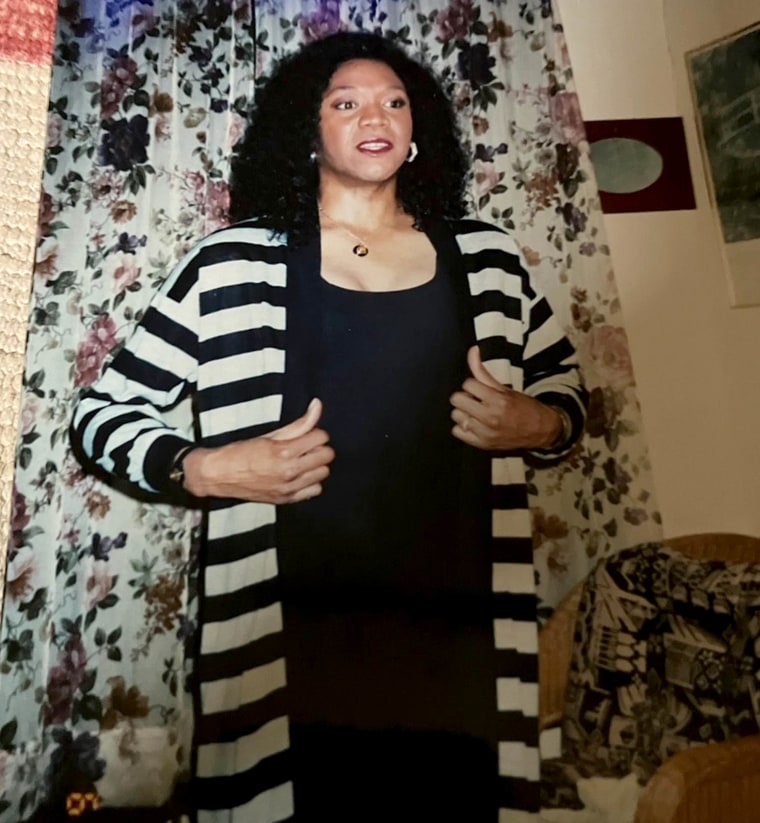When Toni Towasser found the lump in her breast, she visited her primary care physician and later underwent a mammogram and learned she had breast cancer. The diagnosis stunned her — as a trans woman, she did not realize she was at risk for breast cancer.
“I was a little upset,” Towasser, 66, of New York City tells TODAY.com. “Breast cancer can happen to you.”
A lump that grew quickly
When Towasser moved to New York City in 1984, she started taking “bootleg” hormones to help her transition, she recalls. At the time it was almost unheard of for trans people to receive prescriptions for hormones, and many relied on buying them on the black market, she says. She’s sharing her story to raise awareness that trans patients need to see doctors for cancer screenings.
“Younger people now they think they’re invincible in the moment,” she says. “(Cancer) can happen.”
In November 2022, Towasser felt a lump in her breast and called her primary care physician’s office. At first, they told her it was nothing to worry about. But Towasser felt it growing and called back. By December 2022, she had an appointment with her doctor, who recommended a mammogram. After the test, she learned her diagnosis: hormone-positive breast cancer.
“I went to a really good doctor, Dr. Cate, who was my surgeon, and she told me what I had to do was ... stop taking hormones, and then she was going to do this surgery,” Towasser recalls. She underwent a lumpectomy, where the cancer is removed while leaving as much of the breast as possible.
At first, she felt worried: Would she need to lose her entire breast? What would life without hormones be like?
“I was a little put off when she said I had to stop them. I was like, ‘Oh my God, what am I going to do?'” she says.

After her lumpectomy, she had to do three weeks of radiation, which "was grueling, but it wasn’t painful,” she says. “They kept telling me, 'You’ll get tired,' and you get tired. I’d have to come home and rest after each session.”
Breast cancer and trans women
There currently aren’t any specific guidelines for breast cancer screening in trans women, Towasser’s doctor, Dr. Sarah Cate, director of the special surveillance breast program at Mount Sinai Health System, says.
“It makes it very complicated for patients to navigate,” Cate tells TODAY.com. “Patients are left on their own to navigate based on risk.”
A family history of breast cancer increases an individual's risk, so Cate believes trans people with a family history should undergo regular screening. But for trans people without a family history, the risk of breast cancer isn't fully understood. Many trans people take hormones to aid in their transition, which may increase their risk of developing breast cancer, Cate says, but many doctors don't know about this connection nor what guidance to give trans patients on hormones regarding breast cancer screening.
What’s more, many trans patients are hesitant to visit a doctor because they have experienced bias when seeking care, such as having been misgendered or mistreated in a medical setting, TODAY.com previously reported.
“It’s still the case that transgender people come to seek medical services less because they are less trusting of the medical system, and for something like breast cancer, it is a big deal,” Dr. Joshua Safer, executive director of the Mount Sinai Center for Transgender Medicine and Surgery, told TODAY.com in 2020. “Breast cancer that’s caught early has a much greater chance of being treated and the person has a much better chance of their (life) being saved than if they waited.”
Cate advises trans women to be open with their doctors about the hormones they're taking and any family history of cancer. This information can help their doctors make individualized screening recommendations.
“I do think most doctors are absolutely willing to order those (screenings) for patients. I think it’s something there isn’t enough awareness around,” she says. “Patients can advocate for themselves to get a mammogram if they’ve had a certain amount of hormone therapy.”
Cate also encourages trans women to be familiar with their breasts and pay attention to any changes.
“Take a look. If you feel sometime on one side, check it on the other side in the same position,” she says. “If you feel alarmed absolutely go and get it checked out.”
Raising awareness
Soon after finishing radiation, Towasser began feeling better.
“Luckily, I made it through that,” she says.
She says her faith in God helped her navigate treatment and recovery, and she’s learned that she’s “stronger than (she) thought.” Being observant about her body helped Towasser find the lump and receive treatment to be cancer-free.
“I was told that it was caught early,” she says. “You thank God this surgery and all of the radiation is over because it overwhelms you after a while.”